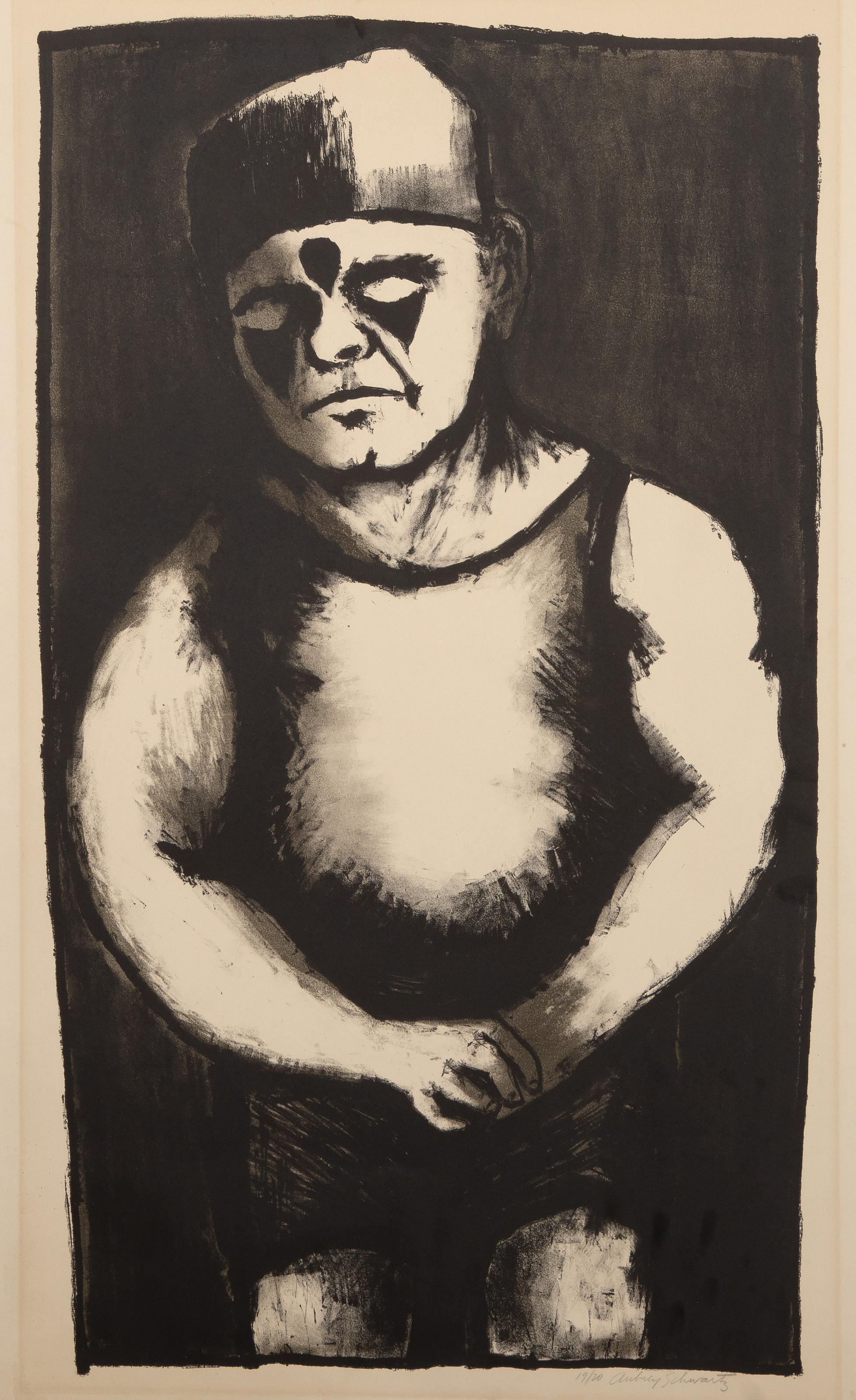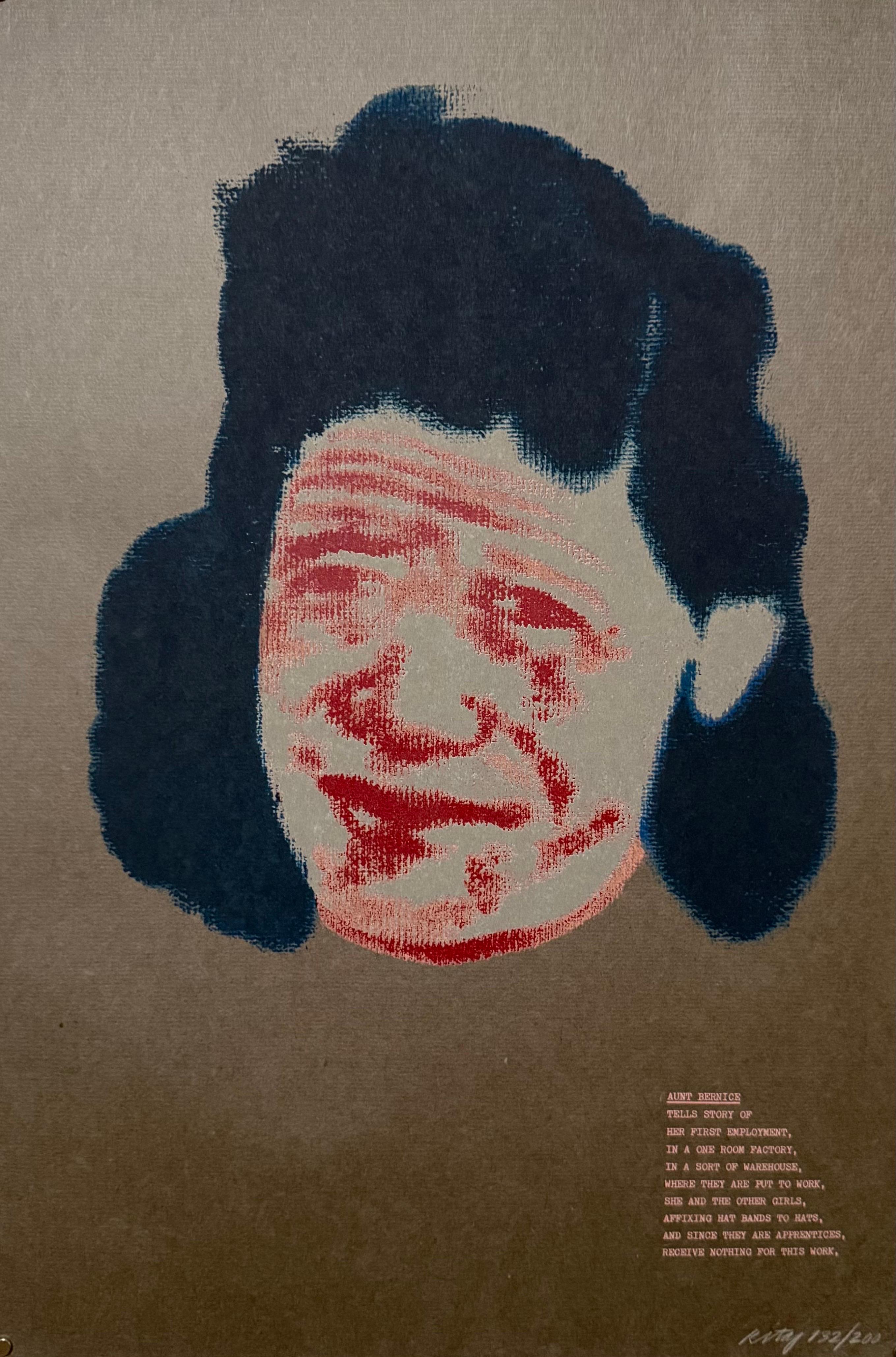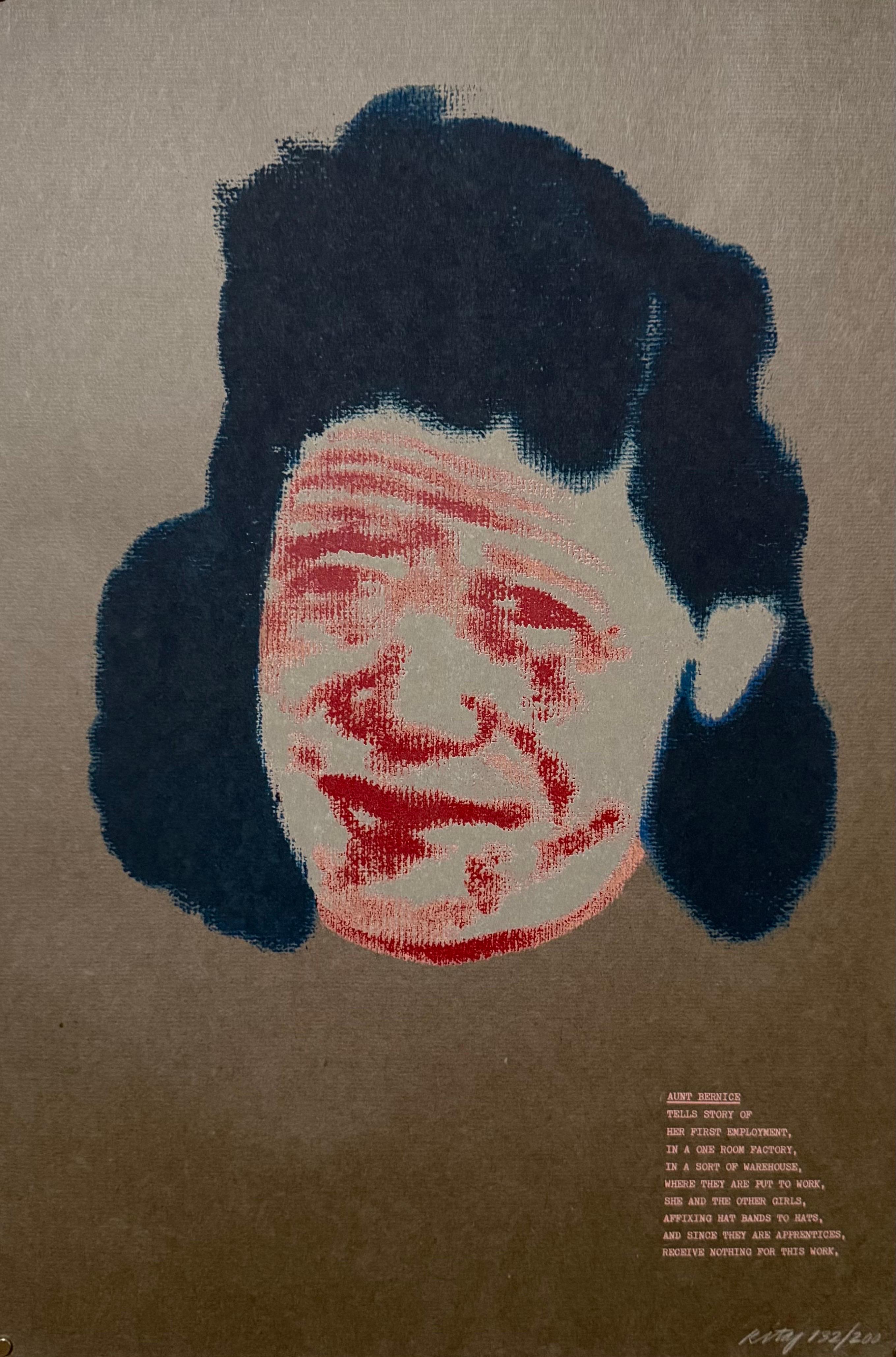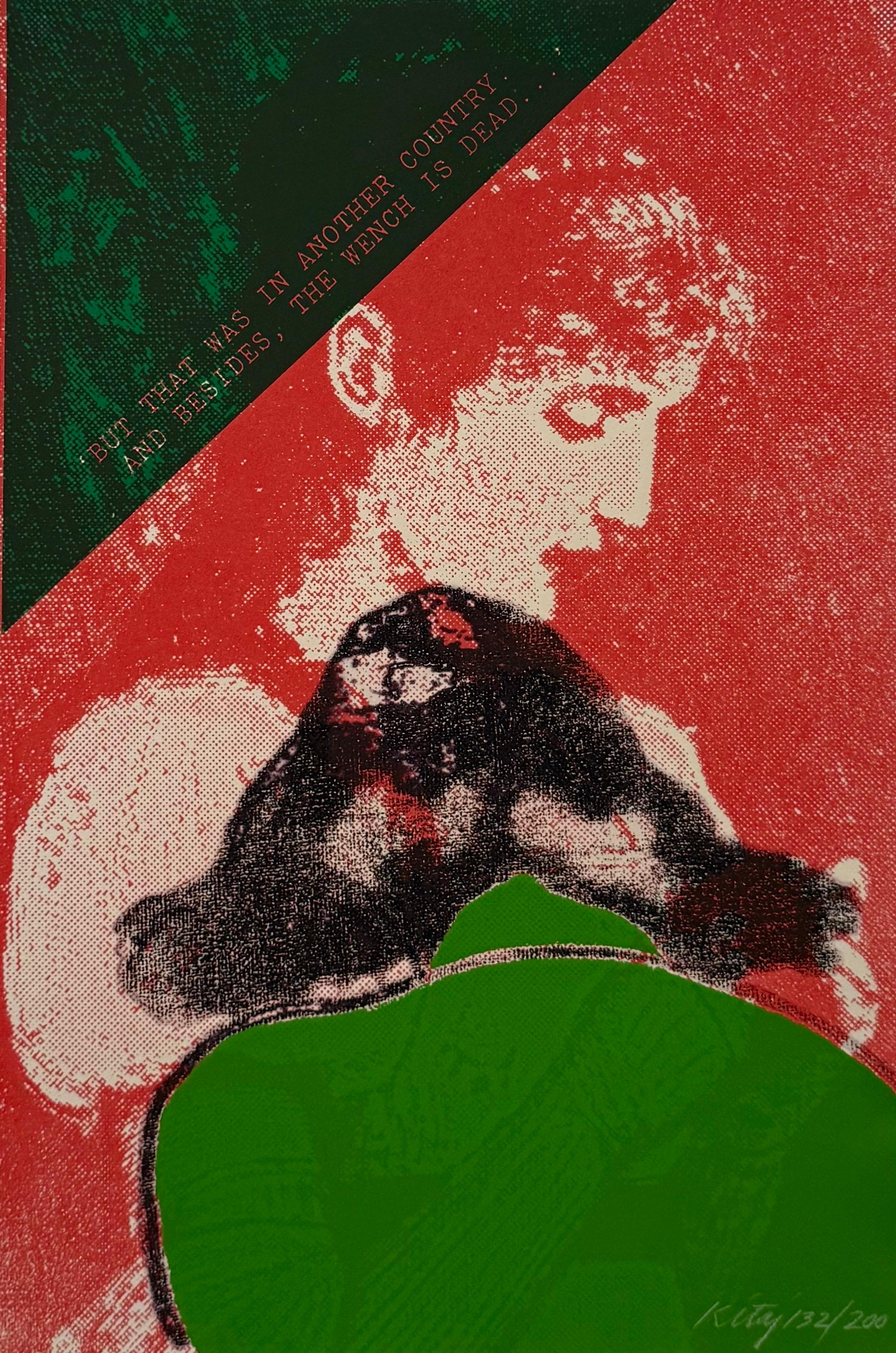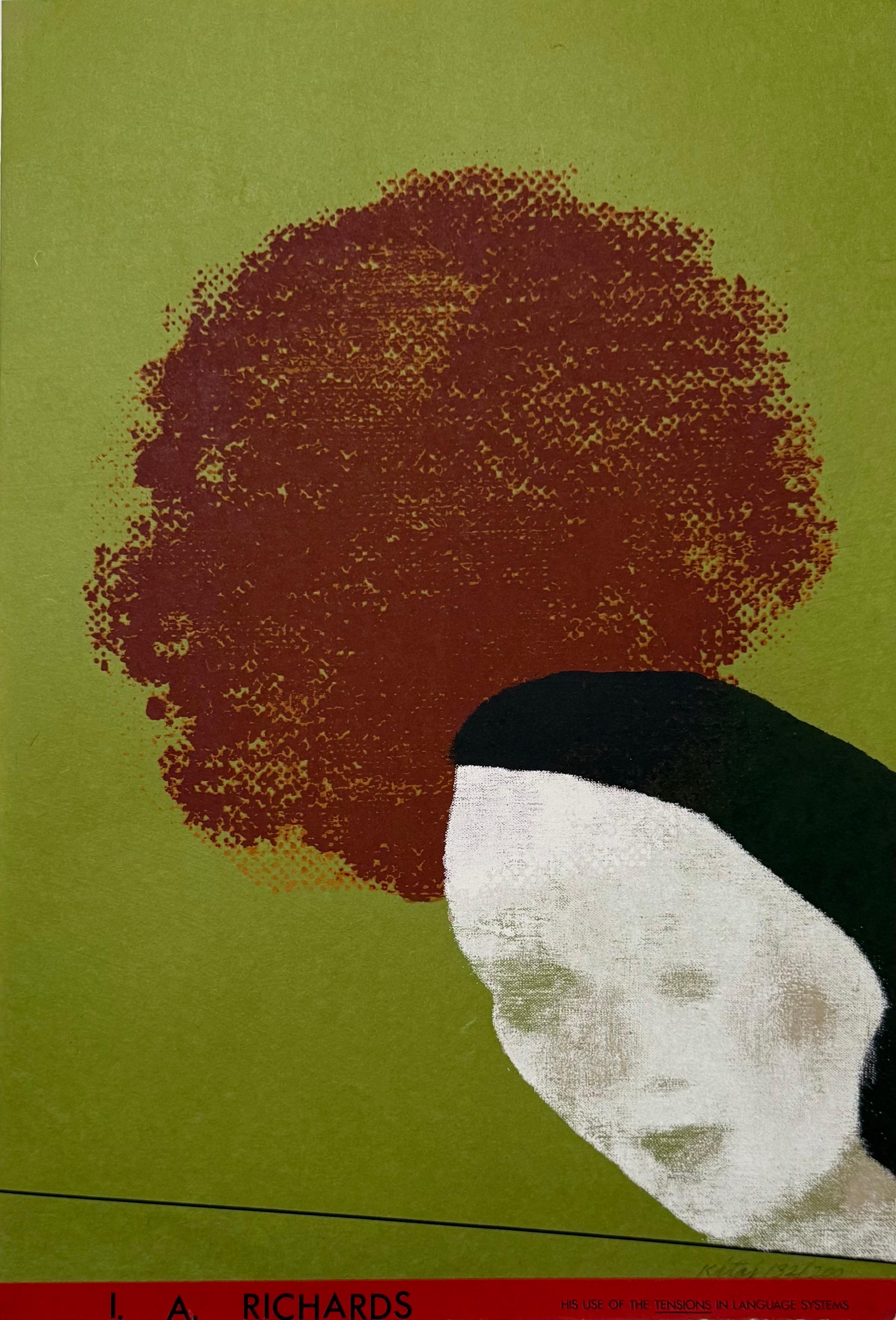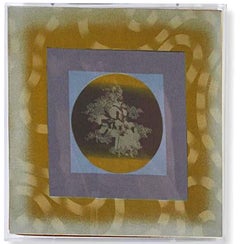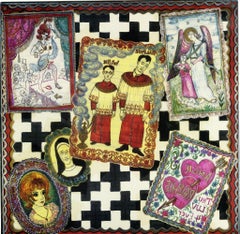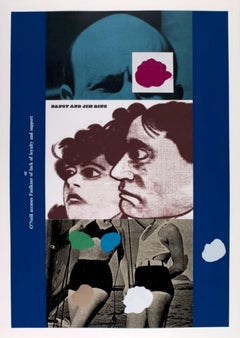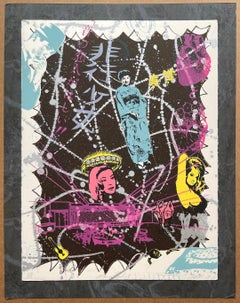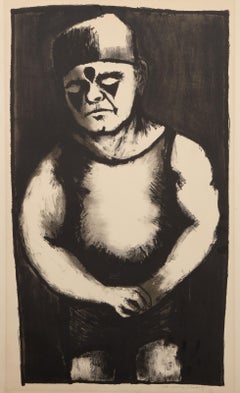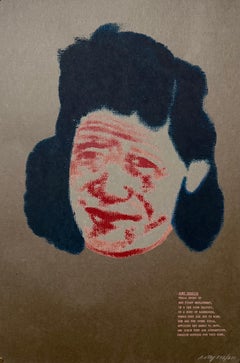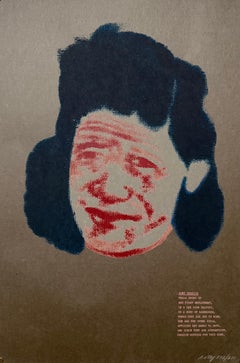Items Similar to BAD (silkscreen and lithograph print) by renowned Chicago artist expressiionist
Want more images or videos?
Request additional images or videos from the seller
1 of 8
Ed PaschkeBAD (silkscreen and lithograph print) by renowned Chicago artist expressiionist1991
1991
$2,500
£1,872.61
€2,164.64
CA$3,510.79
A$3,823.81
CHF 2,023.81
MX$46,785.55
NOK 25,043.05
SEK 23,639.10
DKK 16,156.35
About the Item
Ed Paschke
BAD, 1991
Silkscreen and Lithograph on Rising Mirage Paper, accompanied by documentation
Pencil signed, titled "BAD", and annotated "Trial Proof" on the front
22 × 20 inches
Unframed
Also accompanied by gallery issued Certificate of Guarantee
This work is a unique Trial Proof on Rising Mirage Paper, pencil signed by the artist and annotated "Trial Proof" the very first impression, aside from the regular edition. It is accompanied by the tirage sheet, with the biography of the artist and a description of the work. (see photos). As such it is a rare impression.
Published by Chicago Serigraphic Workshop and Artco, Incorporated
Ed Paschke Biography:
Ed Paschke was born in Chicago where he spent most of his life as an important painter. He was initially associated in the late 1960s with the second generation of Chicago Imagists who called themselves The Hairy Who. He received his B.F.A. from the School of The Art Institute of Chicago in 1961 and his M.F.A. in 1970. Between degrees he lived for a time in New York where he easily came under the influence of Pop art, in part, because of his interests as a child in animation and cartoons. His fascination with the print media of popular culture led to a portrait-based art of cultural icons. Paschke used the celebrity figure, real or imagined, as a vehicle for explorations of personal and public identity with social and political implications.
Although his style is representational, with a loose affiliation to Photorealism, Paschke’s art plays heavily upon expressionist distortion and abstract form. The often grotesque cast to his paintings suggests an affiliation in spirit with Surrealism, a modern art movement that has historically interested Chicago artists and collectors. In the 1970s, his figures, now presented primarily as headshots in extreme close-ups, began to wear masks and unusual headgear. Colors became electric; forms were increasingly distorted by video-like disturbances; facial features of mouth, eyes, and nose were hollowed out or veiled with aggressive color shapes. These features became standard elements of Paschke’s disquieting and compelling art.
- Courtesy Madison Museum of Contemporary Art
- Creator:Ed Paschke (1939-2004, American)
- Creation Year:1991
- Dimensions:Height: 22 in (55.88 cm)Width: 20 in (50.8 cm)
- Medium:
- Movement & Style:
- Period:
- Condition:Very good condition other than creasing to the outer margin corners (see photos) which will frame out.
- Gallery Location:New York, NY
- Reference Number:1stDibs: LU1745213900012
About the Seller
5.0
Platinum Seller
Premium sellers with a 4.7+ rating and 24-hour response times
Established in 2007
1stDibs seller since 2022
450 sales on 1stDibs
Typical response time: 2 hours
- ShippingRetrieving quote...Shipping from: New York, NY
- Return Policy
Authenticity Guarantee
In the unlikely event there’s an issue with an item’s authenticity, contact us within 1 year for a full refund. DetailsMoney-Back Guarantee
If your item is not as described, is damaged in transit, or does not arrive, contact us within 7 days for a full refund. Details24-Hour Cancellation
You have a 24-hour grace period in which to reconsider your purchase, with no questions asked.Vetted Professional Sellers
Our world-class sellers must adhere to strict standards for service and quality, maintaining the integrity of our listings.Price-Match Guarantee
If you find that a seller listed the same item for a lower price elsewhere, we’ll match it.Trusted Global Delivery
Our best-in-class carrier network provides specialized shipping options worldwide, including custom delivery.More From This Seller
View AllCalifornia Cool Pop Art Mixed media & lithograph hand signed 20/20, artist label
By Billy Al Bengston
Located in New York, NY
Billy Al Bengston
Cockatoo AAA Dracula, 1968
Lithograph , Zinc and Aluminum, in Silver-Violet, Yellow, Two Grays and Orange on uncalendered Rives paper
Frame included
signed faintly ...
Category
1960s Pop Art Abstract Prints
Materials
Mixed Media, Lithograph
Lithograph from from the Artsounds Collection, signed/n famed cult artist LGBTQ
By Thomas Lanigan-Schmidt
Located in New York, NY
Thomas Lanigan-Schmidt
Untitled, from from the Artsounds Collection, 1986
Lithograph on paper
Signed and numbered from the edition of 200 in ink on the back; also bears artist's stamped name and provenance - Art Sounds portfolio.
12 × 12 inches
Unframed
Signed and numbered from the edition of 200 in ink on the back; also bears artist's stamped name and provenance - Art Sounds portfolio.
This terrific offset lithograph print exemplifies the combination of religion and kitsch that Lanigan Schmidt is best known for. This print was created in the 1980s for the famous Artsounds portfolio, which featured prints by Marcel Duchamp, Jonathan Borofsky among others. Lanigan-Schmidt was a subject of a 2013 retrospective at PS1 MOMA and is on the faculty of the School of Visual Arts in New York.
Provenance:
Artsounds Portfolio
About Thomas Lanigan-Schmidt:
Thomas Lanigan-Schmidt is represented in the collections of the Metropolitan Museum of Art, Whitney Museum of American Art, MoMA, Brooklyn Museum, Ludwig Forum für Internationale Kunst, Ackland Art Museum, Columbus Museum of Art, and Wadsworth Atheneum Museum of Art, among others. He has exhibited extensively throughout the United States and Europe, including the 1980 and 1984 Venice Biennales, the 1991 Whitney Biennial, and the 1999 exhibition The American Century: Art and Culture, 1950-2000, Whitney Museum of American Art, New York, NY. Recent solo exhibitions include Tenemental: With Sighs Too Deep for Words, Howl! Happening, New York (2018); Thomas Lanigan-Schmidt: Mysterium Tremendum, Rockland Art Center, NY (2013); and Ecce Homo: Thomas Lanigan-Schmidt & The Art of Rebellion, Pavel Zoubok...
Category
1980s Outsider Art Figurative Prints
Materials
Lithograph
O'Neill accuses Faulkner of lack of loyalty and support (Nancy & Jim Dine)
By R.B. Kitaj
Located in New York, NY
Ronald B. (R.B.) Kitaj
Nancy and Jim Dine, or O'Neill accuses Faulkner of lack of loyalty and support (Kinsman 40), 1970
16 Color Silkscreen with collage and coating on different wove papers
Hand signed and numbered in pencil 29/70 on the front. The back (which is framed) bears the Kelpra Studio blindstamp
Frame included: held in the original vintage metal frame
Very rare stateside. Other editions of this work are in the permanent collections of major institutions like the British museum, which has the following explanation: "The artist Jim Dine and his wife Nancy were close to Kitaj and his family, especially after the death of Elsi, Kitaj's first wife in 1969. They sometimes stayed with the Dines at their farm in Vermont during Kitaj's second teaching sojourn in the United States. Dine and Kitaj held a joint show at the Cincinnati Museum of Art in 1973. In the catalogue both artists contributed an insightful 'essay' on each other with Dine stressing Kitaj's obsession with all things American and baseball-related...' The alternate title, "O'Neill accuses Faulkner of lack of loyalty and support" can be seen on the artwork itself, and clearly is some kind of inside joke among friends. By the way -- do you see the way the colored dots are placed over the figures? Kitaj was doing this well before Baldessari who made it famous; that's how pioneering he was at the time.
Referenced in the catalogue raisonne of Kitaj's prints, Kinsman, 40
Published and printed by Chris Prater of Kelpra Studio, Kentish Town, United Kingdom
Ronald Brooks (RB) Kitaj Biography
R.B. (Ronald Brooks) Kitaj was born in 1932 in Cleveland Ohio. One of the most prominent painters of his time, particularly in England where he spent some four decades spanning the late 1950s through the late 1990s, Kitaj is considered a key figure in European and American contemporary painting. While his work has been considered controversial, he is regarded as a master draughtsman with a commitment to figurative art. His highly personal paintings and drawings reflect his deep interest in history; cultural, social and political ideologies; and issues of identity.
Part of an extraordinary cohort who emerged from the Royal College of Art circa 1960, which included Peter Blake, Patrick Caulfield, and David Hockney, Kitaj was immediately pegged as one of its leading figures. The London Times greeted his first solo show in 1963 as a long-awaited and galvanizing event: “Mr. R.B. Kitaj’s first exhibition, now that it has at last taken place, puts the whole ‘new wave’ of figurative painting in this country during the last two or three years into perspective.” In 1976, KItaj curated the exhibition The Human Clay, and in the essay he wrote for it he proposed the existence of a “School of London”—a label which stuck to a group of painters that includes Francis Bacon, Frank Auerbach, Lucian Freud, Leon Kossoff, Michael Andrews...
Category
1970s Pop Art Portrait Prints
Materials
Mixed Media, Screen, Pencil
Bad Girls, Signed 9 color lithograph Pop artist Kenny Scharf Rare Printers Proof
By Kenny Scharf
Located in New York, NY
Kenny Scharf
Bad Girls, 1989
Lithograph done with 9 colors and 10 plates on Velin Arches Blanc paper
Hand signed and numbered PP by Kenny Scharf on the front
Unframed: the work was r...
Category
1980s Pop Art Figurative Prints
Materials
Lithograph
Red Feat (Lloyd, 73) Signed/N silkscreen by pioneering British Pop Artist Framed
By Allen Jones
Located in New York, NY
Rare coveted silkscreen in museum quality frame:
Allen Jones
Red Feat (Lloyd, 73), 1976
Lithograph on Arches paper
Hand signed, dated and numbered 49/60 in pencil recto, with Landfal...
Category
1970s Pop Art Abstract Prints
Materials
Lithograph
Scarce lithograph, from the Art Against AIDS Portfolio, signed/numbered 38/50
Located in New York, NY
William Steen
Untitled, from the Art Against AIDS Portfolio, 1988
Lithograph on paper with deckled edges
Hand signed, numbered 38/50 and dated on lower front with printer's and publisher's blindstamp.
20 1/5 × 15 inches
Unframed
Hand signed, numbered and dated on lower front with printer's and publisher's blindstamp.
This powerful limited edition lithograph by William Steen was published in 1988 as part of the Art Against Aids portfolio, numbered 38/50.
Superb provenance as it is was acquired from the original Art Against AIDS Portfolio published in Houston, Texas. This will be the first time the work will be removed from the portfolio. The late 1980s was the height of the AIDS epidemic, and this was one of many efforts by the creative community to raise funds to assist in fighting this deadly scourge that disproportionately affected the artistic community.
William Steen 1949-2008
William Steen, artist, collector, curator, and mystic, died of pancreatic cancer on December 20 in New York, where he has lived since 2001. Long time framer at the Menil Collection, the soft-spoken Steen is remembered in Houston where he had his first exhibition of paintings in 1978 at the Roberto Molina Gallery. In 1984 Steen made his first of several trips to India, photographing thousands of Tibetan Buddhist ritual paintings. A champion of outsider art, in 2000 he tangled with the Houston Police over the grafitti mural he comissioned for the walls of the reclaimed Sterling Cleaners...
Category
1980s Contemporary Portrait Prints
Materials
Lithograph
You May Also Like
Harlequin, Surrealist Lithograph by Aubrey Schwartz
Located in Long Island City, NY
Aubrey Schwartz, American (1928 - 2019) - Harlequin, Year: circa 1965, Medium: Lithograph, signed and numbered in pencil, Edition: 19/20, Image Size: 28.25 x 15.25 inches, Size: 30...
Category
1960s Surrealist Portrait Prints
Materials
Lithograph
Psychedelic Man - Original Digital Pigment Print, Handsigned and Numbered
By Paul Indrek Kostabi
Located in Paris, IDF
Paul KOSTABI (Paul Indrek KOSTABI, called)
Psychedelic Man
Original Digital Pigment Print
Handsigned in pencil
Numbered /75
On vellum 61 x 49 cm (c. 24 x 19.2inch)
Authenticated wi...
Category
21st Century and Contemporary American Modern Figurative Prints
Materials
Digital, Digital Pigment
British Pop Art Artist RB Kitaj Screenprint Day Book Serigraph Silkscreen Signed
By Ronald Brooks Kitaj
Located in Surfside, FL
R.B. Kitaj (British American 1932-2007)
Hand signed and numbered
Screenprint
Measures approximately 24.5 X 16.65 inches
This is from the Robert Creeley daybook. They were done in ...
Category
1970s Pop Art Figurative Prints
Materials
Screen
British Pop Art Artist RB Kitaj Screenprint Day Book Serigraph Silkscreen Signed
By Ronald Brooks Kitaj
Located in Surfside, FL
R.B. Kitaj (British American 1932-2007)
Hand signed and numbered
Screenprint
Measures approximately 24.5 X 16.65 inches
This is from the Robert Creeley daybook. They were done in ...
Category
1970s Pop Art Figurative Prints
Materials
Screen
British Pop Art Artist RB Kitaj Screenprint Day Book Serigraph Silkscreen Signed
By Ronald Brooks Kitaj
Located in Surfside, FL
R.B. Kitaj (British American 1932-2007)
Hand signed and numbered
Screenprint
Measures approximately 24.5 X 16.65 inches
This is from the Robert Creeley daybook. They were done in ...
Category
1970s Pop Art Figurative Prints
Materials
Screen
British Pop Art Artist RB Kitaj Screenprint Day Book Serigraph Hand Signed
By Ronald Brooks Kitaj
Located in Surfside, FL
R.B. Kitaj (British American 1932-2007)
Hand signed and numbered
Screenprint
Measures approximately 24.5 X 16.65 inches
This is from the Robert Creeley daybook. They were done in a...
Category
1970s Pop Art Figurative Prints
Materials
Screen
More Ways To Browse
Grotesque Painting
Richard Serra Poster
Robert Rauschenberg Signed Lithographs
Ruth Hiller
Sonia Delaunay Signed
Terres De Grand Feu
Thomas Houseago
Used Military Jets
Yaacov Agam Agamograph
Adja Yunkers Artist
Alechinsky Signed
Andre Thomkins
Basquiat Announcement Card
Chalcographie Du Louvre Prints
Cow Parade
Cy Twombly Lithograph
Damien Hirst Spot Print
Damien Hirst Theodora
